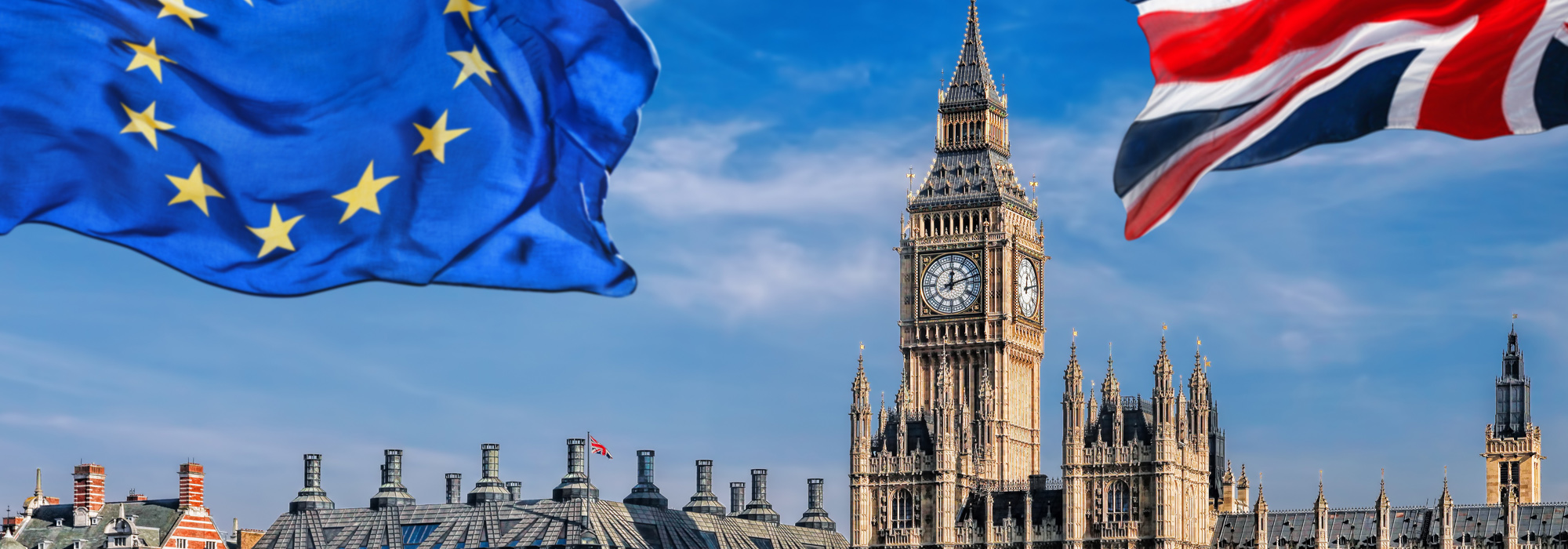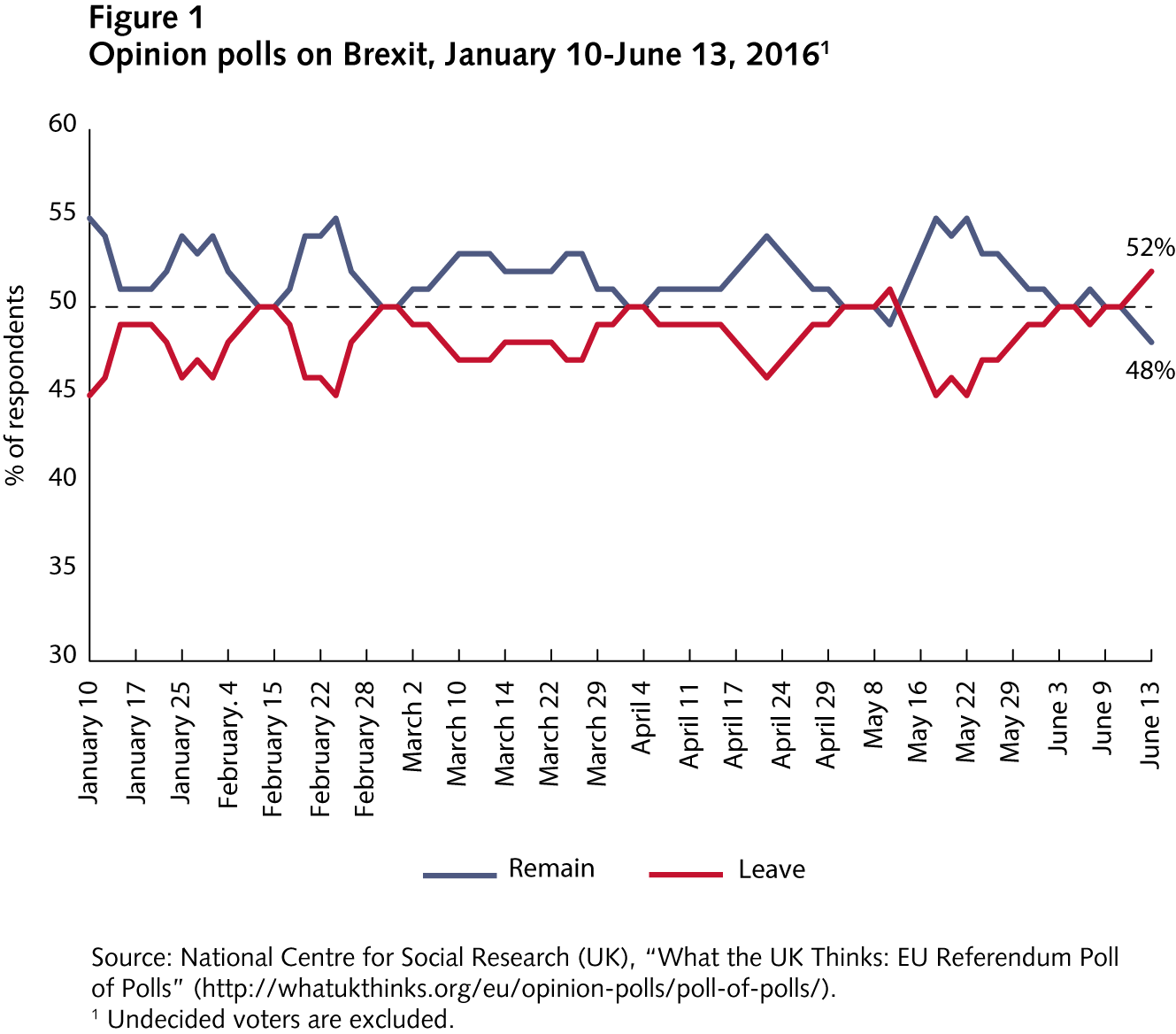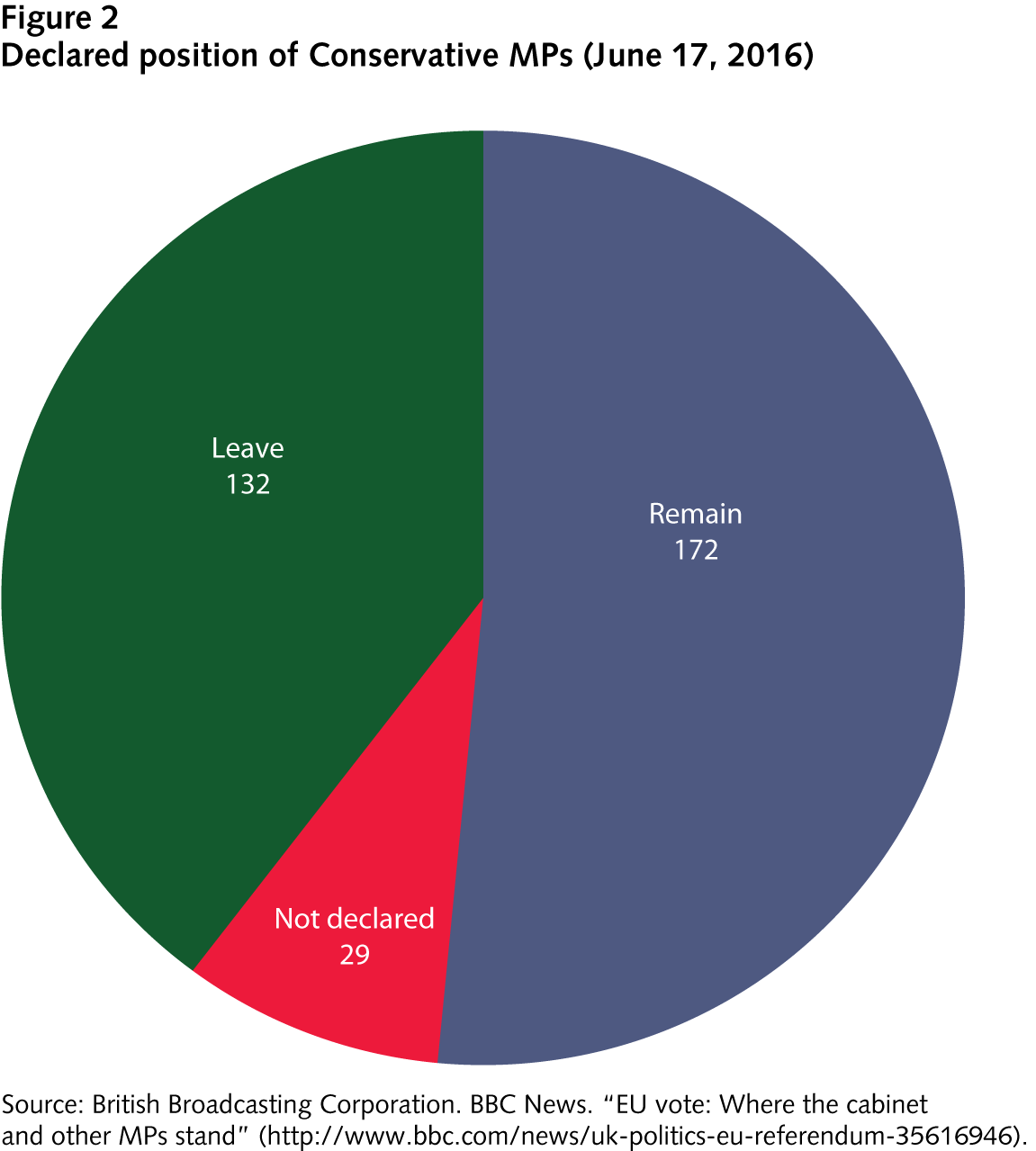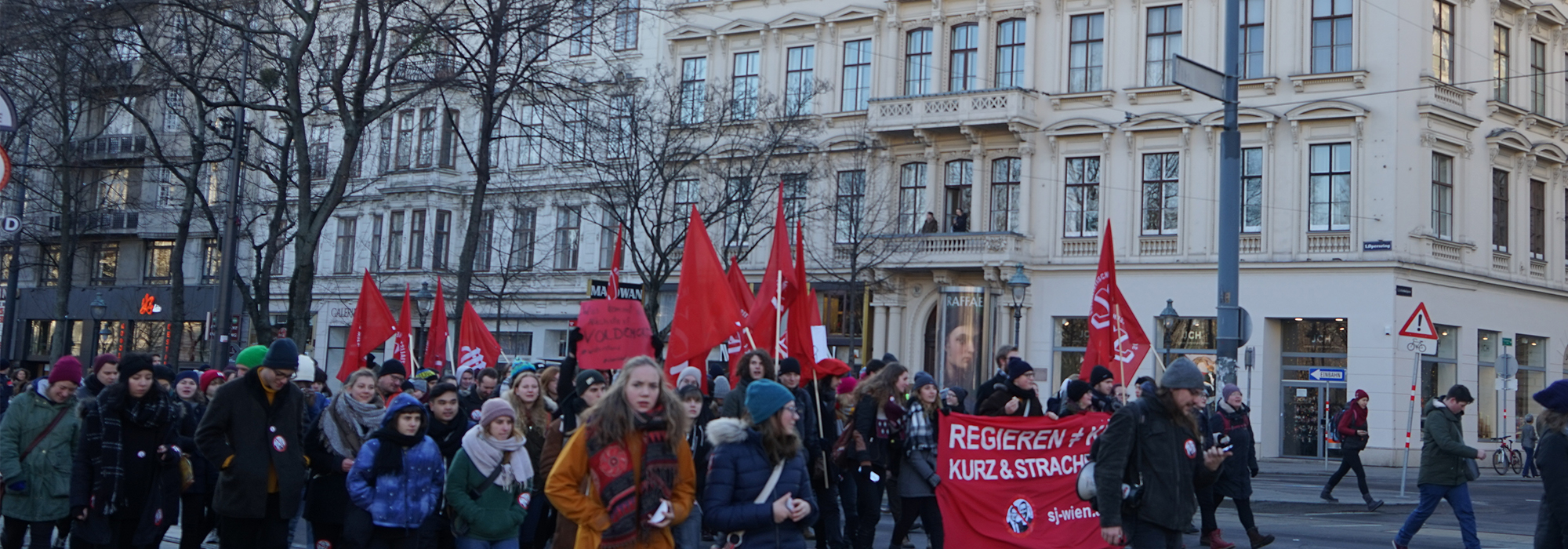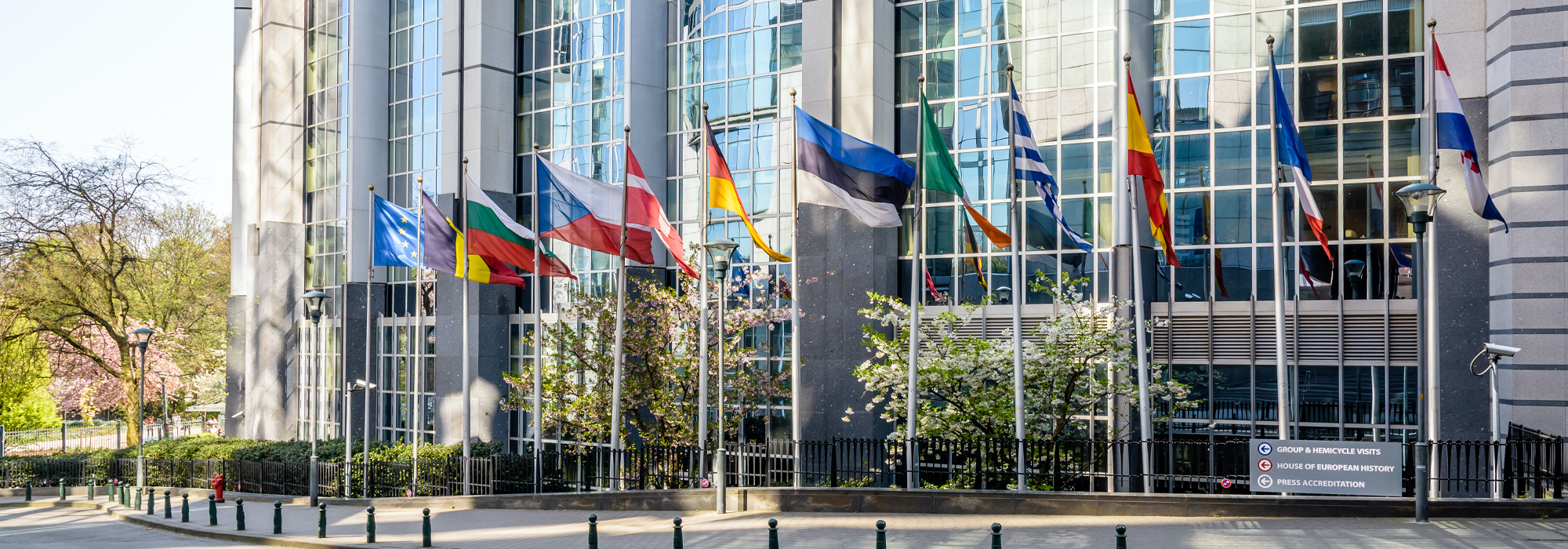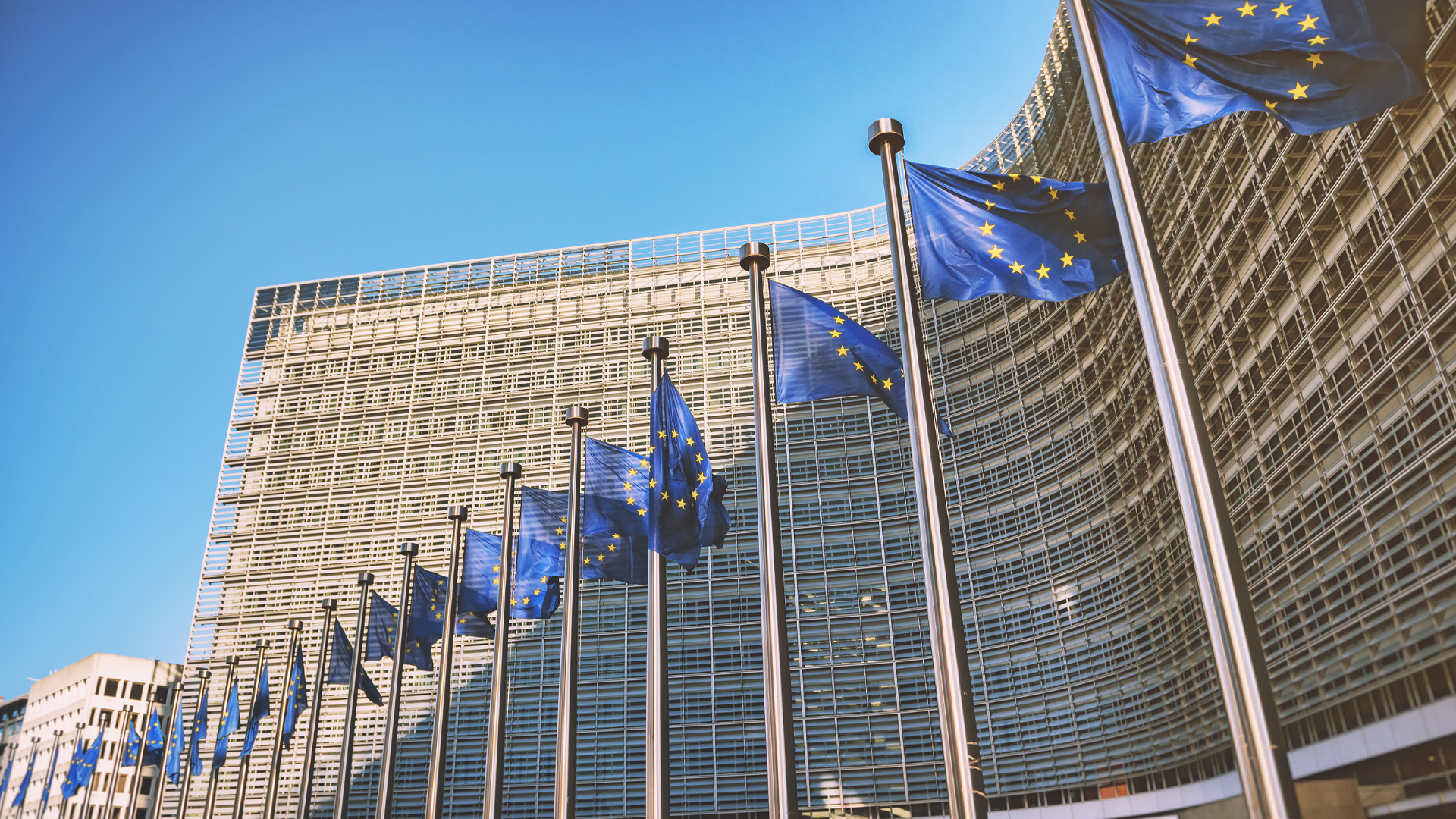
As an American who has transplanted himself twice: once to Quebec in 1993, and then to the United Kingdom in 2012, I wonder whether I perhaps carry with me a separation gene: not only did I leave my own homeland, but everywhere place I live in seems to want to leave the political entity it is in shortly after I arrive. I wouldn’t be so presumptuous to think that there is any cause and effect, but it does give me a certain “outsider’s inside perspective” on the debates and passions that have consumed the UK for the past several months.
I have also been employed by organizations that have played a central role in the respective debates: the Quebec 1995 referendum and Brexit 2016. For the former, I was a research assistant at the IRPP, one of the few organizations capable of bringing federalists and sovereignists to the table for a civil and informed debate. For the latter, Oxford Economics has done a large amount of economic research on Brexit and it organized a high-profile debate between Alistair Darling and Nigel Lawson, who were chancellors of the exchequer under Gordon Brown and Margaret Thatcher, respectively. And when I return home to my mixed neighbourhood of toney Victorian homes and litter-strewn council flats, I listen carefully to conversations in the pubs and corner shops.
There are many parallels between the Brexit debate and Quebec separation debate in 1995 — most importantly the high drama that characterized both. Recent polls have put the “Leave” side in the UK ahead for the first time, and patterns in the number of undecided voters suggest that they are tacking towards Brexit. Put simply, if the polls are to be believed (figures 1, 2), there is a real chance that Brexit could happen – something that was probably about as far off David Cameron’s radar screen when he promised a referendum as it was from Daniel Johnson’s in 1994.
But one way the two referendums differ fundamentally is in their genesis. In Quebec, the referendum was the result of the Parti québécois coming to power the year before, after campaigning on holding and winning a referendum on Quebec sovereignty. The political battle lines were clearly drawn.
In sharp contrast, the EU referendum was born out of political necessity. During the coalition government of 2010-15, the staunchly anti-EU UK Independence Party had been making considerable inroads into mainstream British politics – peeling off Conservative voters along the way – and there was considerable restiveness among Tories themselves about the UK’s place in Europe. David Cameron had no choice but to “negotiate a better deal with Europe,” as the Conservative platform has long stated, and commit to a plebiscite on that deal, even though Cameron knew he would be one of the most ardent supporters of the “Remain” option.
As in Quebec in 1995, there are economic and social aspects to the Brexit debate. The social aspects are clearly dominant, which is the main reason why it is a tight race (see figure 1). If economic issues were the decisive aspect, the outcome would be much easier to predict, since there is broad consensus that exiting the EU would be a bad economic deal for the UK, whatever the ensuing arrangement. Oxford’s analysis indicates that the economic losses could reach 4 percent of GDP by 2030 if the UK decides to go it alone. At the other extreme, the “Norway” option, by which full access to the Common Market is maintained, would have virtually no negative economic impact. This is precisely because the main factors influencing the economics of that option – trade access and free movement of labour and capital – would remain largely as they are today. This supports the most compelling reason for staying: why would the UK want to have an arrangement under which it must adhere to EU rules but would have no say in how they are developed and implemented?
Given the broad consensus around the economics, it is curious that some of the arguments on the “Leave” side are also economic in nature. One of them — that leaving would enable the UK to negotiate more advantageous trade deals on its own — is hard to take seriously, given that the EU-Canada agreement is signed and sealed and negotiations for an EU-US deal are at an advanced stage. One could ask a variant of the question that Quebecers undoubtedly asked themselves about Quebec in 1995: What negotiating advantage would the UK have, given that its economy depends more on the EU than vice versa?
A second “Leave” argument is that the free movement of people is undermining the British economy. In particular, goes the argument, the massive influx of migrants from the new Eastern European members (which joined starting in 2004) are stealing jobs and holding down wages. This is at odds with labour market trends: from 2005 to the start of the financial crisis in 2008, the unemployment rate was flat, about the same as it had been before 2004, and growth in average weekly earnings in fact accelerated. The economic hardship of recent years has everything to do with fallout from the global financial crisis (which hit the UK harder than it did continental Europe), and virtually nothing do to with the arrival of some 1 million Eastern Europeans over the past decade.
It is also important to note that the UK is outside the Schengen area of passport-free movement in the EU, that it verifies the identity and citizenship status of every individual crossing its border, and that it has the right to refuse entry to anyone (including EU nationals) for security reasons. The perpetrators of the massacres in Paris and Brussels could not have slipped into the UK undetected.
There is a more visceral side to the British immigration story. Britain has become much more culturally diverse in the past 20 years: the foreign-born population has nearly doubled, from 5.8 percent to 11.9 percent (this is, however, far below Canada’s more than 20 percent). As in Canada, these new arrivals have come disproportionately from non-European countries, and they bring with them customs and traditions that, while broadly welcomed, occasionally clash with what are seen as “British values.” Ironically, while London recently elected a Muslim mayor and nary an eyebrow was raised, there are more than two dozen Sharia councils throughout the country that are applying strict Islamic law to divorce cases.
But whether the UK stays in the EU has little bearing on this, which is fundamentally a domestic policy challenge. Brussels has absolutely no authority over its member’s policies on non-EU immigration, nor does it dictate how a country should manage integration. The shortcomings – and achievements – of the UK in this regard stand solely on the shoulders of Britons.
Another complaint is that excessive regulation and red tape coming out of Brussels hamstrings the efficiency of the UK economy. The trouble is that, when pressed for specifics on which specific regulations are doing the most harm, the “Leave” camp can provide precious few examples. In fact, many of the regulations increase business efficiency by harmonizing things like food product labelling. It also didn’t help that Boris Johnson, the high-profile former mayor of London who is leading the “Brexiteers,” cited as examples regulations that don’t exist.
But my reading of the “overbearing Brussels” argument is that it manifests a deeper feeling on the part of many Britons that association with the European project — even with the exceptions and special status that the UK has negotiated over the years — is gradually undermining Britain’s standing as a world power and what it means to be British. It is easy to forget that less than a lifetime ago the UK possessed an empire on which the sun never set, and it stood alone against the darkness of Hitler. What I have learned in my four years living here is that, while history is in the past, it is very present in the British collective psyche. It will likely have a significant bearing on people’s voting intentions — much as the collective history as experienced and interpreted by les Québécois contributed to the near victory of the “Yes” side in 1995. If we wake up on June 24 to a “Leave” result, Britons will have voted with their hearts rather than their heads.
Photo: Samot / Shutterstock.com
Do you have something to say about the article you just read? Be part of the Policy Options discussion, and send in your own submission. Here is a link on how to do it. | Souhaitez-vous réagir à cet article ? Joignez-vous aux débats d’Options politiques et soumettez-nous votre texte en suivant ces directives.




